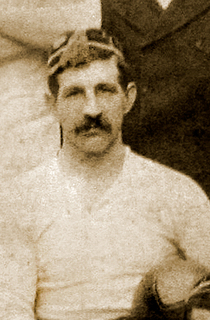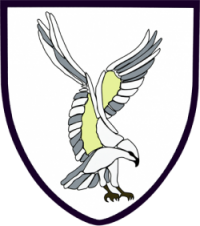Club Captain : William Gwynn
Capped v England : William Bowen (d), D Morgan
Capped v Scotland : William Bowen, D Morgan
(d) = International debut, (c) = captain of international side.
W H (William Henry) Gwynn was re-elected to the captaincy of the 1st XV for the 1885-86 season. In his second term in the stewardship of the growing Swansea Club, there were still the local rivalries with Llanelli, Newport, Cardiff and with Neath (who knocked Swansea out of the South Wales Challenge Cup) but new opponents on the fixture list showed the ambition of the Club as Hull were played at Cardiff in mid February due to a District Cup Final being played at St Helens on the same day. Swansea went down by a goal and seven minors to a minor to the English side but two days later, Dewesbury were played away on 15th February 1886 and recovered from a storming start to the game by the welsh side to clinch a draw. St Helens was the neutral venue for the South Wales Challenge Cup Final when Llanelli beat Cup holders Newport. The St Helens ground received a huge boost as the uncertain future of the location was finally resolved. The Cambrian of 24th December 1885 carried the headline –
;”ST HELENS FIELD THE FIGHT FOUGHT AND WON”.- “Alderman William Thomas is to be congratulated on having fought the prolonged fight and fairly won the battle in favour of retaining the St Helens Field as an open space for the use of the public. Of course he has had to face a great deal of serious opposition – earnest opposition – on the part of some of his fellow Councillors and the public generally. The oppositionists are generally economists, falsly so-called. They seem to imagine that Swansea, which has grown with such gigantic strides within the last generation, will grow no more. They cannot see the signs of the times. They do not recognise that Swansea must go westward and Oystermouth must come eastward until they meet at Blackpill or Westcross and so form one great town. The march of bricks and mortar is slow but it is sure. under these circumstances, it is the baldest unwisdom, as Alderman Thomas has contested throughout, to leave no room for recreation, for breathing space and for open air exhibitions. the contest over the St Helens Field has been a long one and the Alderman is to be congratulated apon the result. The field is to be properly laid out, well grassed and enclosed within a nice iron railing.” How appropriate are those same sentiments today.
In April, at the Annual Dinner of the Cricket and Football Club, Vice-President W H Gwynn who captained the rugby football 1st XV said in response to a toast, that he attributed some of the defeats the Club had sustained to the eccentricities of referees (applause). If refereeing decisions are sometimes baffling nowadays, it must have been doubly hard for them in the early days of rugby football in Wales, with touch judges generally coming from the participating sides and referees who were not always familiar with the evolving laws of the game. A Swansea v Llanelli game in January 1886 at St Helens descended into farce at the final whistle with a contested conversion attempt by Llanelli from the first half giving rise to “a warm dispute” at full time. presumably, both sides were confident of winning and discounted the value of the score till the closeness of the result forced them to reassess (either Llanelli won by a goal & 2 touches down, or Swansea won by a try and 4 touches down to a try and two touches down).
On the International scene, William Bowen, in his first full season at Swansea gained his first Welsh cap (of 13 caps) at forward against England at Blackheath on 2nd January 1886 where the home team won by 2 tries and a marked goal to a Welsh goal. Dai Morgan, another Swansea forward also played in this match, gaining his second of 7 caps. At Cardiff Arms Park on 9th January Scotland beat Wales by 3 tries (2 converted) to nil in a game in Which Wales were the first country to play with four three-quarters, though they changed the formation by the end of the game to match Scotland’s nine forwards. William Bowen and Dai Morgan again represented Swansea in the Welsh side.

William Arnold Bowen played as a forward for Wales on 13 occasions between 1886 and 1891 and was captain versus England in 1891. He was also a member of the team on 15 February 1890 that defeated England for the 1st time.
He made his Swansea debut in 1886 and retired in April 1892 but served on the match committee for a number of years afterwards.
